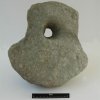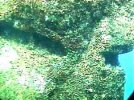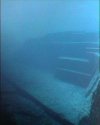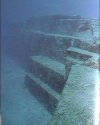You are using an out of date browser. It may not display this or other websites correctly.
You should upgrade or use an alternative browser.
You should upgrade or use an alternative browser.
Atlantis
- Thread starter shijing
- Start date
 Thanks Shijing for this thread.
Thanks Shijing for this thread. 
I found the section of Karmic inheritance very interesting.
I would like to hear the opinion of users about the next comment of the C's. Alice always causes me headaches. ;)
Shijing said:Karmic inheritance
(...)
A: You are dancing on the 3rd density ballroom floor. “Alice likes to go through the looking glass” at the Crystal Palace. Atlantean reincarnation surge brings on the urge to have a repeat performance.
OrangeScorpion] I would like to hear the opinion of users about the next comment of the C's. Alice always causes me headaches. ;) [/quote] [quote author=Shijing said:Karmic inheritance
(...)
A: You are dancing on the 3rd density ballroom floor. “Alice likes to go through the looking glass” at the Crystal Palace. Atlantean reincarnation surge brings on the urge to have a repeat performance.
Hi Orange Scorpion,
Fwiw as speculation - As for the last part, it seems when reading other references to Atlantean life, that it was possibly not of one place, perhaps more of a frequency vibratory alignment that spread like what is seen today with minds that have no eyes to see and ears to hear, and by incremental adjustment are evermore aligning to the Atlantean reincarnated dictates; like the Nazi trial run attracted a specific frequency, like tuned in moths to the malignant flame so to speak. Lost continents, cities, structures, it seems possible it was many and pathology along with earth changes was its undoing on this 3d ballroom floor.
Taking a long-shot at the words Crystal Palace within the ruts of Etymologies there is a number of interesting word linkages;
http://www.etymonline.com/index.php?search=crystal+palace&searchmode=none
Crystal - it was regarded by the ancients as a sort of fossilized ice.
Palace - late 13c., "official residence of an emperor, king, archbishop, etc.," from O.Fr. palais, from M.L. palacium "a palace," from L. palatium "palace" (cf. Sp. palacio, It. palazzo), from Mons Palatinus "the Palatine Hill," one of the seven hills of ancient Rome, where Augustus Caesar's house stood (the original "palace"), later the site of the splendid residence built by Nero. The hill name probably is ultimately from palus "stake," on the notion of "enclosure." Another guess is that it is from Etruscan and connected with Pales, supposed name of an Italic goddess of shepherds and cattle. The general sense of "splendid dwelling place" is from late 14c.
The others are worth reading from labyrinth all the way to the bottom to anarchy if only to link words.
Screaming Alice was Cockney rhyming slang for Crystal Palace. Crystal Palace in England was the exhibit glass house of the industrial revolution of 1851.
Otherwise, the C's indeed have a way with words and as people have noticed lots of digging is required to get even some sort of clue. :)
Parallax said:http://www.etymonline.com/index.php?search=crystal+palace&searchmode=none
The others are worth reading from labyrinth all the way to the bottom to anarchy if only to link words.
Very interesting thank you very much.
Parallax said:Otherwise, the C's indeed have a way with words and as people have noticed lots of digging is required to get even some sort of clue. :)
Ok. There is no Free Lunch ;)
Parallax said:Screaming Alice was Cockney rhyming slang for Crystal Palace. Crystal Palace in England was the exhibit glass house of the industrial revolution of 1851.
I don't speak English. I searched the Internet and I see that Cockney rhyming slang is as a pun but... what word has been replaced to rhyme?
[quote author=OrangeScorpion ] I don't speak English. I searched the Internet and I see that Cockney rhyming slang is as a pun but... what word has been replaced to rhyme? [/quote]
There seems to be no remembered reason of the slang that I can find and assume the rhyme is Alice/Palace of course and the slang would require Cockney knowing. In this instance, from the Nun Head rail line to the end at the Chrystal Palace (screaming Alice). That's the trouble with the ruts of looking up words, they can lead you astray or they can help in strange linkages; in the case above, it is probably an irrelevant end. The intent of the original reference might even take one into another language or some other obscure meaning.
There seems to be no remembered reason of the slang that I can find and assume the rhyme is Alice/Palace of course and the slang would require Cockney knowing. In this instance, from the Nun Head rail line to the end at the Chrystal Palace (screaming Alice). That's the trouble with the ruts of looking up words, they can lead you astray or they can help in strange linkages; in the case above, it is probably an irrelevant end. The intent of the original reference might even take one into another language or some other obscure meaning.
Ottershrew
Jedi Master
Shijing said:Size and Location
Q: (L) How big was the main island of Atlantis?
A: 1,354,000 square miles.
To compare: this would be a bit less than half the size of Australia (2,970,000 square miles), or a bit larger than India (1,269,221 square miles).
This is just a fwiw - but the size of the main island of Atlantis given by the C's more or less exactly matches the size of the mostly submerged continent of Zealandia or Tasmantis, at 1,350,000 square miles.
The parts still remaining above the ocean surface are New Zealand and New Caledonia.
A brief description on Wikipedia can be found here: Zealandia (continent)
dannybananny
Jedi Council Member
A brief description on Wikipedia can be found here: Zealandia (continent)
Atlantic ocean isn't called Atlantic for no reason!
Ottershrew
Jedi Master
dannybananny said:Atlantic ocean isn't called Atlantic for no reason!
That's a really good point, dannybananny. But from what I understand, so far, the C's have held off from explicitly stating that Atlantis was in the Atlantic Ocean.
Here's the best I could find:
C's said:Q: All I wanted was to have an idea of a land mass in the Atlantic ocean that people talk about - where did it sit?
A: Where do you think?
The natural answer to this question would perhaps be, "Somewhere in the Atlantic Ocean - but you're unwilling to say exactly where." But I don't think they've suggested anything stronger than this, which leaves the matter still open, osit.
As I said earlier, the information about the size of Zealandia was a "fwiw". But we need to cover all bases, don't you think?
dannybananny said:A brief description on Wikipedia can be found here: Zealandia (continent)
Atlantic ocean isn't called Atlantic for no reason!
Can you clarify your point? Are you saying Zealandia isn't likely because it's in Pacific Ocean and not the Atlantic? If so, Arysio Santos has some interesting ideas in that regard. He thinks that, as Atlantis was a global empire, with major colonies the world over, all the world's oceans were originally called "Atlantic", i.e. the Ocean of Atlantis. As memory of Atlantis faded so did knowledge of world geography. When the Americas were "discovered", it was assumed that that's where the Atlantic ended. I haven't finished reading his book ("Atlantis: The Lost Continent Finally Discovered"), but so far he presents some good evidence for the main continent/HQ of Atlantis being in the South China Sea, on the Sunda Shelf, which went under water at the end of the last Ice Age.
I find it interresting that when the C's have been asked about Atlantis, they referred at NATO (North Atlantic Treaty Organisation). Today, in French at least, we use the term "atlantist" to refer to a certain globalist and capitalistic tendency in world politics (through NATO, World bank, IMF, right-wing (and false left-wing) parties in Europe, Neoconservatives in the USA, etc.). Also, when we consider the name Atlantis, we may think of the titan Atlas?
Another point Santos makes is that the Greek "nesos" and Latin "insula" derive from the Dravidian "incu" meaning "watery land, marsh". Santos argues that they refer more to "continents" than islands as we now think of them and ultimately derive from a word describing Atlantis specifically. Here's a link to a checklist he made on the points supporting a southeast asian location for Atlantis, where he also talks about the "Atlantic Ocean" idea: _http://www.atlan.org/articles/checklist/
dannybananny
Jedi Council Member
But we need to cover all bases, don't you think?
Of course.
Are you saying Zealandia isn't likely because it's in Pacific Ocean and not the Atlantic?
Exactly.
I haven't finished reading his book ("Atlantis: The Lost Continent Finally Discovered"), but so far he presents some good evidence for the main continent/HQ of Atlantis being in the South China Sea, on the Sunda Shelf, which went under water at the end of the last Ice Age.
To me it looks more like assumptions from link you provided.
However, one should carefully recall that what the ancients called by the name of Atlantic Ocean, or others such as Outer Ocean, Kronius Oceanus, Mare Magnum, Mare Oceanum, etc., was not the same one we nowadays address by that name. As we discuss in detail elsewhere [LINK TO SCIENTIFIC EVIDENCE], the Atlantic Ocean (or simply "Ocean") of the ancients of the times of Plato, Herodotus, Aristotle and others was the whole of the earth encircling ocean.
In particular, this name applied to the Indian Ocean, as can be seen in world maps such as the map of Eratosthenes and the map of Strabo. Erastosthenes actually divided the Atlantic Ocean into two moieties, the oriental and the occidental. And Atlantis was of course located in the Mare Atlanticum Orientale, the oriental half which we now name Indian Ocean. Even more correctly, Atlantis was the divide of the Indian and the Pacific Ocean, as shown in Fig. 1 further below [LINK]. Such is the reason why Paradise — which is to say, Atlantis — is often said to be an "island located in the middle of the seas". Further below (itens 8 ad 9), we will see teh reason why Atlantis is called an "island".
He has here good point based on this maps that the part of Atlantic ocean was today's Indian ocean, but how does he knows that it was situated in eastern part?
One of the most fascinating features of Plato's Atlantis was the vast network of canals used for the double purpose of irrigating its extensive agricultural plains and for the fluvial transportation of their produce. The site of the capital of the Atlantean empire was crossed and surrounded by these canals, forming a figure known as "Celtic Cross" or "Crossed Circle", thus . This symbol is often confused with that of the Earth or even of the Sun. But it indeed originally applied, as in ancient Egypt, to the land of Paradise (To-wer). In fact, the symbol represents Paradise (Eden, etc.) with its Four Rivers flowing into the Four Cardinal Directions, just as described in the Bible. But this symbolism was in fact universal, as can be seen in our page on The Whirling Mountain. [LINK].
This network of canals also contained dams and sluice-gates to control the flow of the rivers. It was a marvel of hydraulic engineering, the likes of which are only attested in the ancient Far East and, to a lesser scale, in Incan America. Moreover, Plato specifically states that Atlantis was a great naval power and that its many ships actively traded with the most distant nations of the overseas. Hence, it is idle to suppose that powers of limited naval abilities such as the Mayan empire or the Celtiberian nations of that epoch or, even more, the Canaries and Northwest Africa could ever have been the true site of Atlantis.
He says that Atlantis was an Eden based on it's construction similarity to ancient symbol.
Pole Shift is both a geological and a physical impossibility, as it violates Angular Momentum Conservation, etc.. Moreover, Antarctica has been under ice for about a million years and more. Forget Antarctica, and forget Pole Shift, much as its former champions are fast doing.
As concerns the Atlantic seafloor, it has been scrutinized to the decameter scale by both oceanographic ships and spy subs and satellites, which never found any evidence whatsoever of sunken islands or, let alone, sunken continents. The important thing to keep in mind is that the main feature of Atlantis was its naval prowess and the impressive network of canals and sluices for both navigational purposes, as well as for agricultural irrigation. Such ancient wonders of hydraulic engineering are only find in the Far East in places such as Angkor, and, perhaps, in the Amazonian extensions of the Incan empire, as some recent discoveries in the region apparently indicate.
He is totally wrong about Antarctica which is shown by Piri Reis map, and his assumption about Atlantic being scrutinized doesn't holds the water because we know that governments aren't going to reveal what they found. And if I'am not mistaken C's said there are crystal pyramids under the water that haven't been revealed, like in Bermuda triangle, close to Brazil, Japan, etc...
Why does he thinks that the main island was situated in Indonesia? Does he has some archeological evidence to support it, like ruins that are found in South America, India, Cuba, etc...? Did he found any traces of atomic explosions in ancient past that were found in Americas, Scotland, India, Russia, Turkey?
dannybananny said:Are you saying Zealandia isn't likely because it's in Pacific Ocean and not the Atlantic?
Exactly.
OK, but why even take Plato seriously on this point? Sure, there are arguments for and against, but all this discussion could just be splitting a hair four ways. After all, consider his discussion of "Egyptians" and "Greeks" which Laura takes apart in Secret History, as well as the language of symbology.
That said, I think there's something to be said about trying to match all the elements of Plato's account to reality and seeing what we can find. I haven't read enough of Santos to know how his theory compares with Andrew Collins' (Cuba) or Emilio Spedicato's (Hispaniola), however.
He has here good point based on this maps that the part of Atlantic ocean was today's Indian ocean, but how does he knows that it was situated in eastern part?
Consider the state of geography when Columbus made his voyages. He was sure the Atlantic would take him to the East Indies. Of course, he was right, he just didn't know he'd have to cross another continent to get there.
He is totally wrong about Antarctica which is shown by Piri Reis map,
I agree.
and his assumption about Atlantic being scrutinized doesn't holds the water because we know that governments aren't going to reveal what they found.
I disagree. He's not just talking about possible structures to be found on the ocean floor, he's talking about submerged continents. Unless there is some process we're not aware of (totally possible) whereby a landmass can sink to the bottom of the sea floor without a trace, then we have a pretty good idea of what was and wasn't above water 13,000 years ago. There aren't any major areas in the Atlantic that close to sea level. However, if you take a look at maps of continental shelves, you can see what lands were above water before sea levels rose ~130 meters. What he's saying is that based on the science as we know it, the sea floor levels as they've been measured, there isn't any good evidence of a sunken land mass in the Atlantic except for small coastal regions off of Europe/Africa and North America.
Why does he thinks that the main island was situated in Indonesia? Does he has some archeological evidence to support it, like ruins that are found in South America, India, Cuba, etc...? Did he found any traces of atomic explosions in ancient past that were found in Americas, Scotland, India, Russia, Turkey?
I don't know. I've only read the first couple chapters.

Trending content
-
-
Thread 'Coronavirus Pandemic: Apocalypse Now! Or exaggerated scare story?'
- wanderingthomas
Replies: 30K -
-




